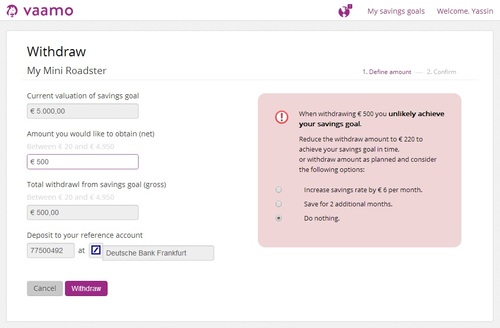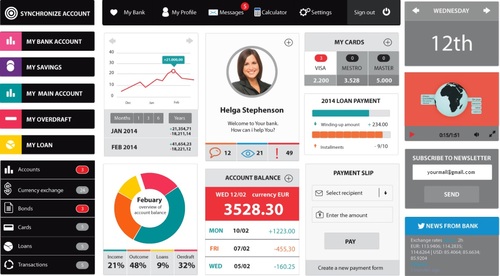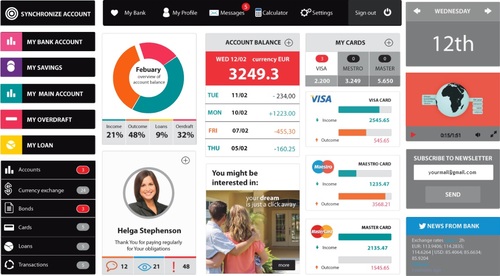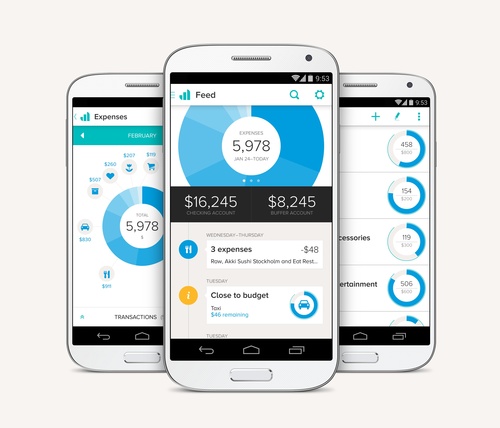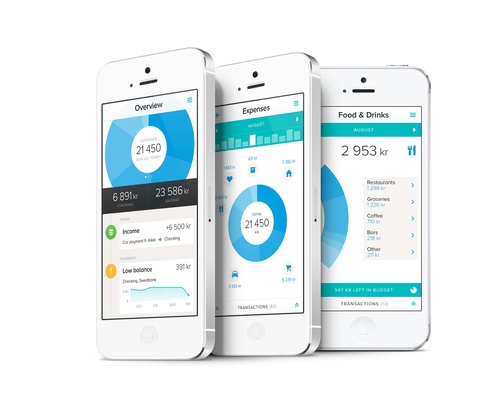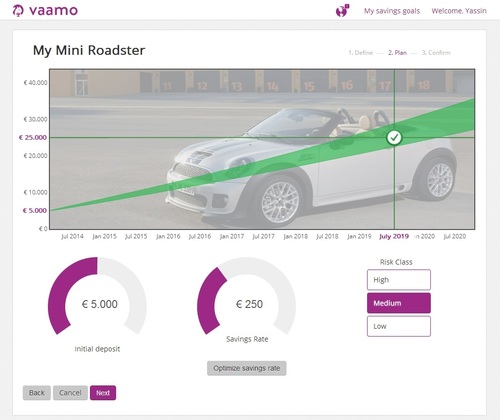In another behind-the-scenes view of FinovateEurope 2014, we take a closer look at NF Innova, Tink, and Vaamo.

What they do
NF Innova helps banks provide a tailored banking experience for their customers. This Personal Experience Module replaces a company’s static CRM system with an adaptive solution. It responds to individual users’ needs without the need for administrative input.
By monitoring user behavior on digital touch points, it automatically provides the functionalities that appeal most to each user. The result is a solution that provides a single location for the end user to address all of their financial needs.
Stats
- $1.5 million in revenue in 2013
- 1 million users in its iBanking suite
- 42 employees
- 15 years experience working with banks
The experience
Customers are greeted with a login screen that speaks especially to them. In this example, the customer is greeted with a clean login screen that targets them with a home mortgage.
After logging in, the user sees a financial “command center” where they can view multiple accounts and have access to P2P payment options, alerts, account balance and feed of transactions over time, and more.
In this view, the My Cards section on the right is expanded to detail the customers’ balance across their credit card accounts.
NF Innova’s solution works for both larger and smaller financial institutions. It is working with one of the largest financial institutions in Russia but is mostly focused on the European market. However, it plans to expand to both North and South America later this year.

What they do
Tink is a direct-to-consumer mobile app seeking to reinvent PFM to make managing finances more enjoyable and digestible for ordinary people. Its average user is a 25-year-old female, and in order to appeal to this demographic, Tink makes looking at finances as easy and beautiful and checking your Instagram feed.
The Sweden-based company does its own aggregation, ensuring that all of users’ transactions are accurately represented. This is crucial because, as Tink notes, it is rare for users to manually input or change details about their transactions. Therefore, if the aggregation isn’t done correctly the first time, the user’s view of their finances will never be accurate.
Stats
- 150,000 users
- 10 employees
- Average user logs in 3 times per week
The experience
The middle phone below depicts the user’s financial feed, which has a similar feel to Facebook’s activity feed. Its purpose is to inform the consumer of their spending while not making them feel guilty about it. By viewing spending habits as something positive, Tink encourages users to log in more frequently.
In addition to the general activity feed, Tink also shows the user a close up view of their spending. The phone in the middle depicts spending across simplified categories, and the one on the right is a magnification of what the user spent on a specific category, Food & Drinks.
Tink is live in Sweden on iOS and Android. It plans to launch in other markets in the future.

What they do
Vaamo helps users achieve their personal financial goals by providing them a simple and easy-to-use platform that visually portrays their goals over time.
It invests the user’s money in international equities, government and corporate loans and real estate. To optimize return on investment, Vaamo uses an investment approach that was developed in collaboration with the Goethe-University in Frankfurt.
If one of the funds changes unexpectedly, the user is prompted to log in and change their goal by either contributing more money or extending the time period.
Stats
- 14 employees
- More than €500K in capital raised
- It is in final negotiations in contracting with a bank in Germany to h
old customer account balances.
The experience
The screenshot below depicts a user’s view of their three goals. With a personalized picture as the background and the progress bar in the middle, it is easy to see each savings goal.
The interface below illustrates the simplicity of setting up a goal. Instead of being burdened with selecting individual funds, the user needs only to select their risk class and how much they are willing to contribute initially.
Users can withdraw funds from their goals at any time. When they opt to withdraw from their account, they are prompted to make a choice about how they want to make up the amount they took from their savings goal (see the red box in the screenshot below).


